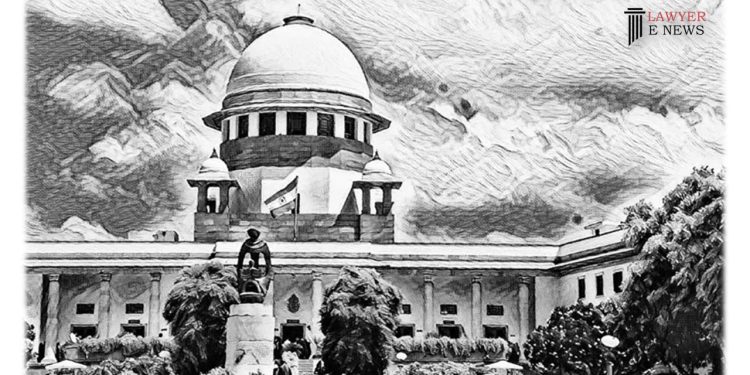-
by Admin
16 February 2026 1:47 PM



In a recent judgment, the Supreme Court of India has upheld the acquittal of the accused in a murder case by the High Court. The apex court, in its ruling, emphasized the importance of establishing guilt beyond reasonable doubt in cases based on circumstantial evidence.
Bench comprising Hon'ble Justice B.V. Nagarathna and Hon'ble Justice Manoj Misra stated, "Normally, this Court is reluctant to interfere with an order of acquittal. But when it appears that the High Court has on an absolutely wrong process of reasoning and a legally erroneous and perverse approach to the facts of the case and ignoring some of the most vital facts, acquitted the respondent and the order of acquittal passed by the High Court has resulted in a grave and substantial miscarriage of justice, extraordinary jurisdiction under Article 136 of the Constitution of India may rightfully be exercised."
The case involved the State of Punjab as the appellant and Kewal Krishan as the respondent. The prosecution's case relied on circumstantial evidence, including the last seen circumstance, discovery of the deceased's body, an alleged extra-judicial confession, and the recovery of a knife. However, the High Court had set aside the conviction and acquitted the accused, casting doubt on the reliability of witnesses and the evidentiary value of the circumstances presented.
The Supreme Court, while considering the appeal, highlighted the need to establish each incriminating circumstance beyond reasonable doubt and to form a complete chain of evidence pointing towards the accused's guilt. The Court agreed with the High Court's doubts regarding the witness's disclosure, the inconclusiveness of the last seen circumstance, uncertainties surrounding the recovery of the weapon, and the weak nature of the alleged extra-judicial confession.
The bench further stated, "The High Court was justified in doubting the testimony of the witness and finding the last seen circumstance inconclusive in pointing towards the guilt of the accused by excluding other hypotheses consistent with his innocence."
The Court dismissed the appeal, upholding the order of acquittal passed by the High Court, as it found no justification to interfere with the plausible view taken by the High Court.
This judgment reiterates the significance of ensuring a thorough analysis of circumstantial evidence and the need for a complete chain of evidence to establish guilt beyond reasonable doubt. It serves as a reminder that the principles of justice require careful scrutiny and a high threshold of proof in criminal cases based on circumstantial evidence.
DATE OF DECISION: June 21, 2023
STATE OF PUNJAB vs KEWAL KRISHAN
